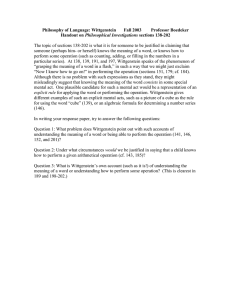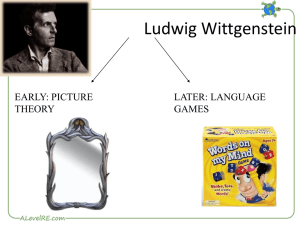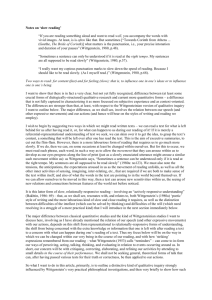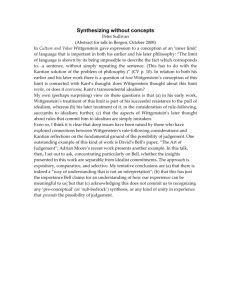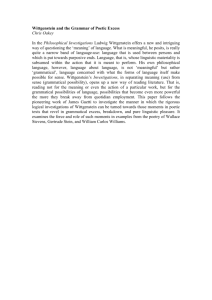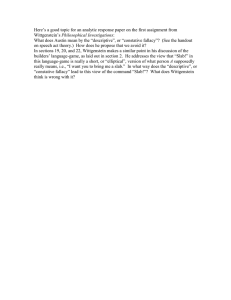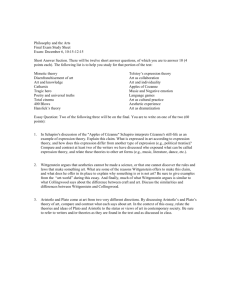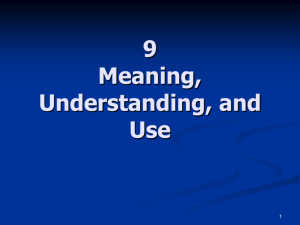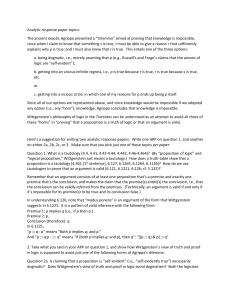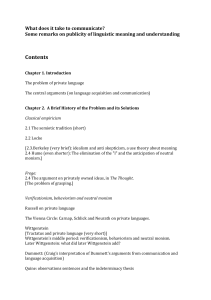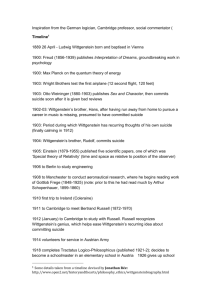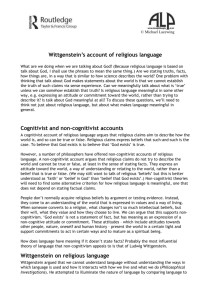Language Games - Philosophy Online
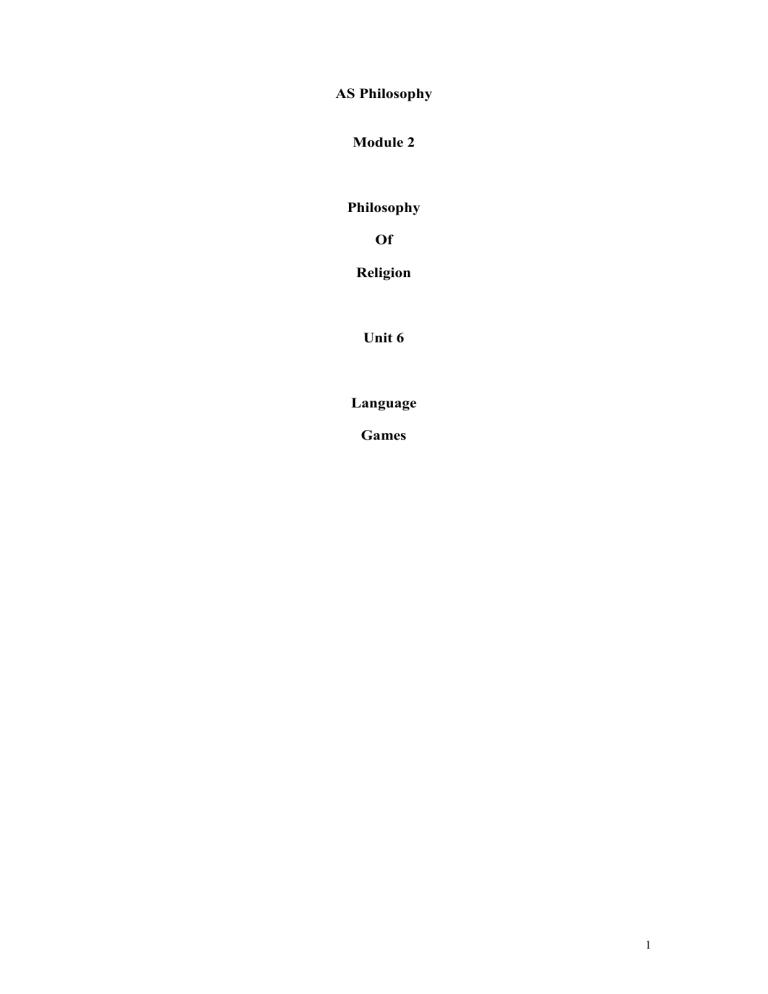
AS Philosophy
Module 2
Philosophy
Of
Religion
Unit 6
Language
Games
1
Introduction
The Austrian born philosopher Ludwig Wittgenstein published only two major works during his lifetime. The first of these, called the Tractatus Logico Philosophicus - "A
Treatise on Philosohical Logic", or Tractatus for short - heavily influenced the Vienna
Circle and the Logical Positivist movement. This is not to say, however, that
Wittgenstein was himself a Logical Positivist.
His second work, the Philosophical Investigations , respresents a sort of about-turn and criticism of his own early ideas as expressed in the Tractatus . The main difference between the two works is his view of how language is meaningful. In the
Tractatus , Wittgentstein had thought that language possessed an underlying logical structure. This allowed the Logical Positivists to say that statements such as "God is good", since they seem to imply a fact that cannot be verified, are meaningless.
Language and meaning
Wittgenstein started to have problems with this view, however. In an analysis of how children learn language, he pointed out that it is commonly assumed that there exists for each word a corresponding idea. However, if we think of words out of context, it is impossible to uphold this view: does "box" mean "fight" or "a cardboard receptacle"? Is it an instruction to "box something up" or "begin to fight"?
Wittgenstein's point is that it is only through a knowledge of the context that a statement is made in can we fully understand it. So, since there is no logical structure which we can rely on to give us meaning, we must look at the way language is used in everyday speech. This led Wittgenstein to propose a radically different view of what philosophy was and what it should do. Since its main task was to simply observe how people commonly spoke, it was best that it did not interfere at all - as Wittgestein says, "A philosopher is a citizen of no community".
From this point of view, language is made up of various "games" which have their own rules. The rules of the game are not themselves questioned, but simply allow the communication to have sense. So, when we ask why we try to kick a football into the back of the goal, the answer is given in terms of the rules of the game: "to score a goal", or "to help our team win".
So, in theology, the answers to certain questions should not be sought outside of the
"rules". The answer to the problem of evil is therefore not to be sought in the question of whether or not God exists - that would be like picking up the football and running down the field. The answer is rather to see what answers the religious believers have come up with.
Responses
Wittgenstein's use of "games" to describe the different contexts that language is used in should not be taken too literally, and it is only one of a number of metaphors which he employs. However, the notion of a game with rules gives us an idea of the overall change of approach.
2
Critics of this view have pointed out, however, that if meaning is defined as "that which makes sense within the rules of the game", then it almost seems as if the rules themselves are exempt from criticism. This view identifies what it calls
"Wittgensteinian Fideism", where Fideism is belief which is unfounded and therefore immune from rational criticism.
A response to this has been supplied by D. Z. Phillips who argues that although religious belief is a "game", which must be taken on its own terms, the game itself need not appeal to everyone. Just as some people prefer cricket to football, so some are atheists whilst others are religious believers. But doesn't this reduce everything to a matter of taste or inclination?
Questions
1.
How did Wittgenstein's view of language influence Logical Positivism?
2.
What did he decide was wrong with this initial viewpoint?
3.
What new definition of meaning did he put forward in his later views?
4.
What metaphor does he use to do it?
5.
What is the main criticism of Wittgenstein's later views?
6.
What is "Wittgensteinian Fideism"?
7.
What is D. Z. Phillip's response to this?
8.
Do you agree with it?
3
